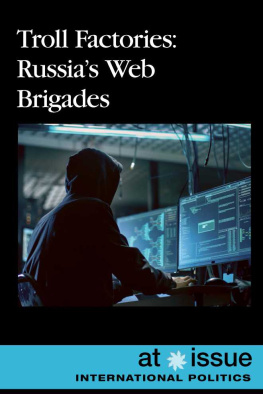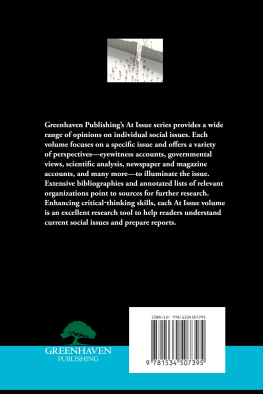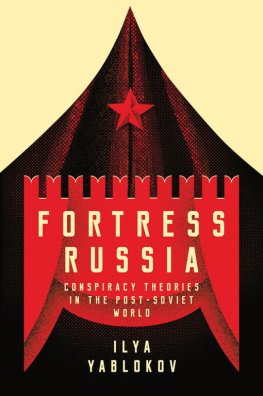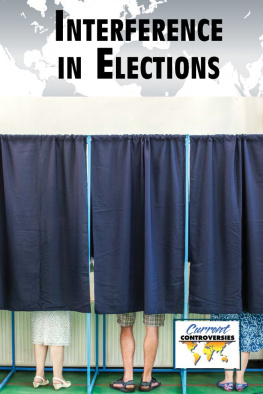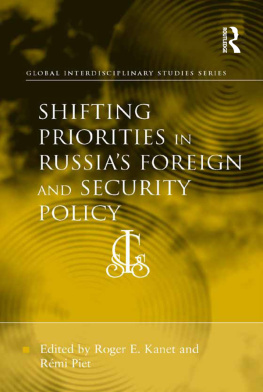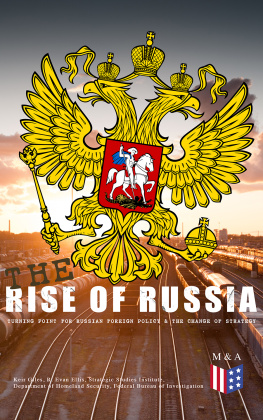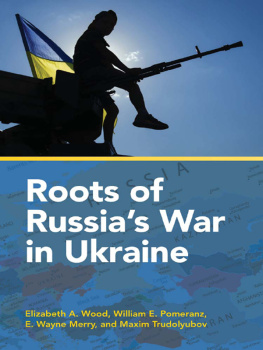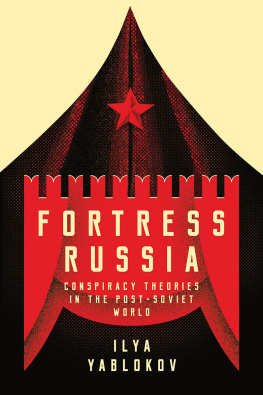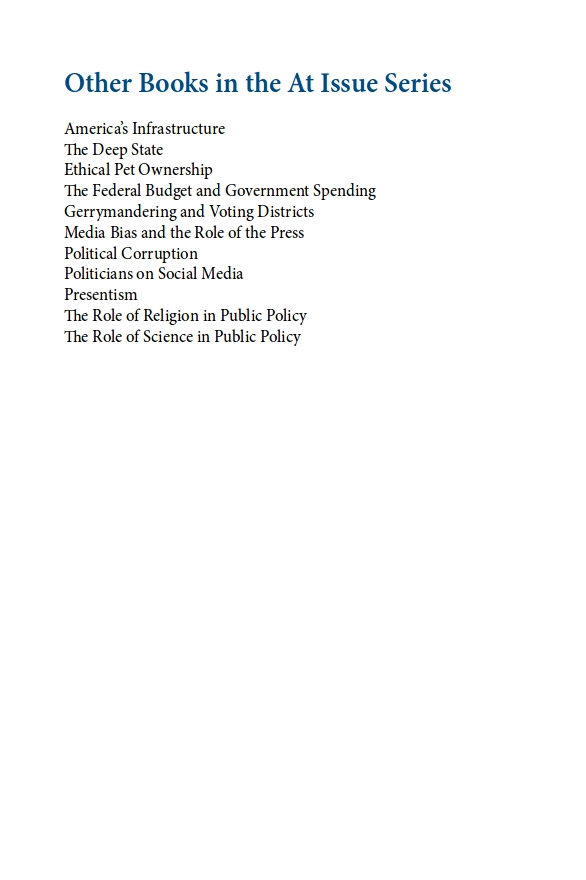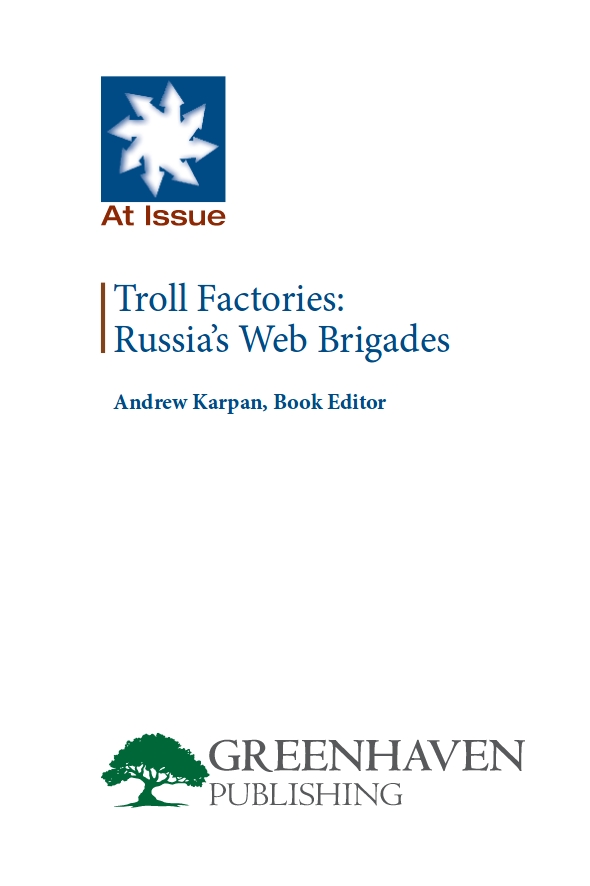
Published in 2019 by Greenhaven Publishing, LLC
353 3rd Avenue, Suite 255, New York, NY 10010
Copyright 2019 by Greenhaven Publishing, LLC First Edition
All rights reserved. No part of this book may be reproduced in any form without permission in writing from the publisher, except by a reviewer.
Articles in Greenhaven Publishing anthologies are often edited for length to meet page requirements. In addition, original titles of these works are changed to clearly present the main thesis and to explicitly indicate the authors opinion. Every effort is made to ensure that Greenhaven Publishing accurately reflects the original intent of the authors. Every effort has been made to trace the owners of the copyrighted material.
Cover image: Gorodenkoff/Shutterstock.com
Library of Congress Cataloging-in-Publication Data
Names: Karpan, Andrew, editor.
Title: Troll factories : Russias web brigades / Andrew Karpan, book editor.
Description: New York : Greenhaven Publishing, [2019] | Series: At issue | Audience: Grade 9 to 12. | Includes bibliographical references and index.
Identifiers: LCCN 2018024893| ISBN 9781534503830 (library bound) | ISBN 9781534504530 (pbk.)
Subjects: LCSH: Computer securityRussia (Federation) | CyberspacePolitical aspects Russia (Federation) | HackingRussia (Federation)
Classification: LCC QA76.9.A25 T76 2018 | DDC 303.48/2dc23 LC record available at https://lccn.loc.gov/2018024893
Manufactured in the United States of America
Website: http://greenhavenpublishing.com
Contents
VSquare
Stephen Hutchings and Joanna Szostek
Chris Collison
Tatiana Stanovaya
Miriam Elder
Aric Toler
Paul Gallagher
Robert Booth, Matthew Weaver, Alex Hern,Stacee Smith, and Shaun Walker
House Permanent Select Committee on Intelligence
Lives Matter MovementMicah White
Gary King, Jennifer Pan, and Margaret E. Roberts
Chay F. Hofilea
Branko Milanovic
Madeleine Crean
Introduction
T he 2016 presidential election will go down in history as the first to be primarily negotiated over social media, its winner better known for his popularly pugnacious Twitter account than the lifetimes of government or military work that marked his forty-four predecessors. But while voting booths preclude anyone without US citizenship from entering, no such requirement exists for users of social media platforms: an often-anonymous sea of millions of profiles, a public forum where anyone can enter. The concept is freeingat no other time in human history have so many voices been able to express themselves without fear of official reprimand. But almost as soon as that freedom presented itself, it was discovered that many of those voices were not actually real. The same governments that had, in the past, thrown journalists in jail and printed propaganda pamphlets to replace them were now generating fictional supporters with the click of a button, bypassing the democratic concept of majoritarian discourse by simply inventing majorities. The 2016 presidential election became the first in our history to be negotiated by internet trollspeople who intentionally stir controversy and start arguments on social media to manipulate public opinion or create chaos.
Many of these trolls, we found out, happened to be based in a nondescript office building in a fashionable neighborhood slightly north of St. Petersburg, Russia. Vladimir Putin, Russias president, had taken office in 2000, shortly after the internet became accessible to millions around the world. At that time, the primary social networks still consisted of message boards, and debate was largely limited to website comment sections. However, as one observer had noticed a few years later, the commentaries of average Russians are striking in the ferocious unanimity of their readers.1 Journalists began suspecting, for the first time, that the internet was being occupied by people who werent real but were, instead, fake names meant to camouflage the fact that the same comments were being paid for and made over and over again. Who posts at night on someone elses LJ? [LiveJournal] asked a headline in New Region, a Russian news agency that later shut down after its editor-in-chief was found dead. By no means was this only happening in Russiathe use of false or misleading identities on the internet were called sock puppets in early Usenet circles in the late 1990s.2 But something already felt officious and organized about these early, shadowy commenters, and many Russian journalists soon came upon the word hpnragHMKn (brigadniki). The web brigades.
Many suspected this was the work of the Federal Security Service (FSB), the government police force that eventually succeeded the infamous KGB after the collapse of the Soviet Union. Before being elected President, Putin had also served as director of the FSB and after his election, he placed the FSB under the Presidents direct control. Many of the ferociously unanimous online opinions were congruent to positions the Putin administration had taken. But confirming these suspicions and even conducting research on the topic was difficult. Jessikka Aro, a Finnish journalist, ended up subject to a campaign of seemingly coordinated online abuse after she issued a call to her audience to speak out about their experiences dealing with what she called Russias troll army on the internet. Everything in my life went to hell thanks to the trolls, she told the New York Times in 2016.3
Confirmation that Putin-affiliated institutions were part of a large-scale trolling operation came when leaked emails showed that a Russian youth group called Nashi, whose work Putin often visibly supported, had been paying bloggers to leave hundreds of comments on news articles that were critical of Putin. Later, a St. Petersburg-based company called the Internet Research Agency (IRA)funded by the Russian businessman Yevgeny Prigozhin, whose catering company personally served Putin eventswas discovered to be paying bloggers full-time to advance Putin talking points on platforms like Twitter, Facebook, and VKontakte, a Russian social network website. By then, the interests of Putin and the FSB had turned away from Russian domestic politics. Russian trolling operations were suspected of involvement in the media cycle surrounding the 2016 Brexit vote in the UK, a political situation that Putina vocal opponent of the EUwas thought to be invested in. Later that year, after the US presidential election, the Obama administration made official its suspicion that the FSB, in collaboration with the GRU (the Russian equivalent of the CIA), were:
...using human intelligence officers and a variety of technical tools...designated for tampering, altering, or causing a misappropriation of information with the purpose or effect of interfering with the 2016 U.S. election processes.4
As conversation on the internet moved away from the comment sections of message boards to social media platforms like Facebook and Twitter, validation proved even easier to numerically manipulate. With enough troll infrastructure, any opinion had the potential to appear popular and thus, for many readers, legitimate. Since most social networks are programmed by algorithms to automatically promote stories that appear to be popular, the websites ended up becoming complicit in expanding the readership of news stories that would only later be categorized as fake news. Because of this, Congress would officially reprimand the leading figures of those companies in the years to follow.

